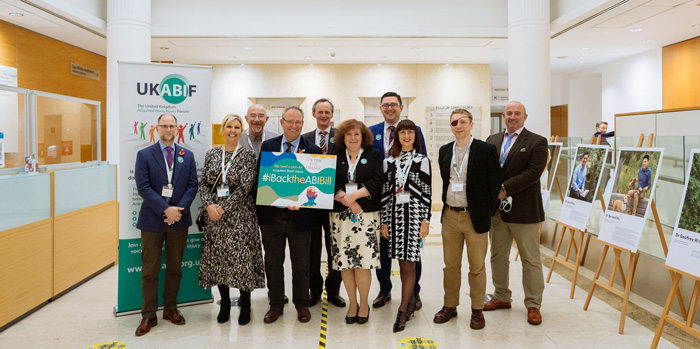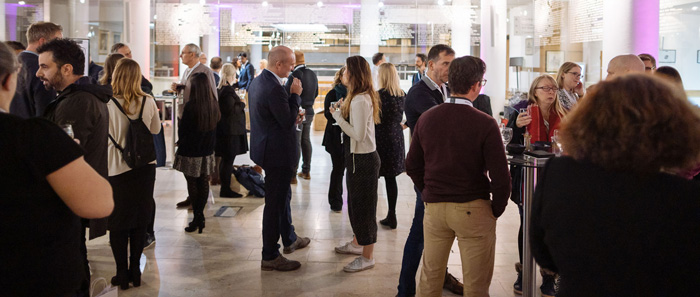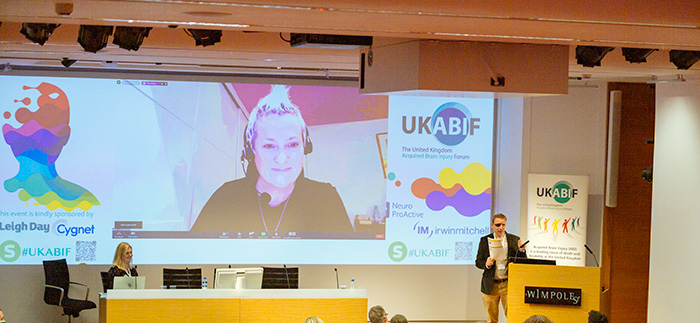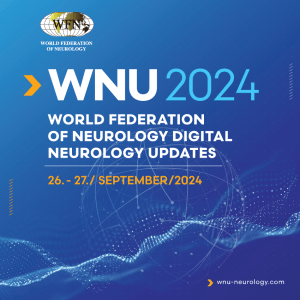UKABIF’s Annual Summit took place at London’s Royal Society of Medicine. The meeting updated delegates on the recent progress following the publication of the ‘Acquired Brain Injury and Neurorehabilitation: Time for Change’ report, as well as discussing the developments and improvements in the delivery of care for people with Acquired Brain Injury (ABI).

Professor Andrew Bateman, UKABIF Chair, welcomed delegates and introduced Chris Bryant, Labour Member of Parliament for the Rhondda, and Chair of the All-Party Parliamentary Group on ABI. Chris briefed delegates on the ABI Bill which was debated in the House of Commons on the 3rd December and encouraged everyone to write to their MPs and request support for the Bill.
Leigh Day sponsored the first session on women, brain injury and sport, currently a ‘hot’ topic with research demonstrating the differences in the way women and men experience sport-related brain injury and neurodegeneration. Freya Holdaway, a professional footballer, described how three concussions in 18 months resulted in her retirement from the game. Dr Elisabeth Williams, Senior Lecturer in Applied Biomechanics at Swansea University highlighted the sex differences in sports players and emphasised the need for female-orientated pitch protocols to deal with concussions, and for treatment to be tailored differently.

The second session was sponsored by Cygnet Health Care, looking at ways to improve clinical practice for people with brain injury. Dr Tony Perini, Consultant Neuropsychiatrist and Alex Scordis-Hutchinson, Neuro-Occupational Therapist, both from Cygnet Health Care, discussed how brain injury and mental health continue to be boxed separately but require a holistic approach to maximise outcomes. “Neurologic Music Therapy (NMT) has a unique contribution to rehabilitation” said Elizabeth Nightingale, Neuro Services Lead and Trainer Neurologic Music Therapist, Chiltern Music who discussed a NMT pilot clinic being run by a partnership between Chiltern Music Therapy and the Regional Neurological Rehabilitation Unit (RNRU) at Homerton Hospital. Chiltern Music Therapy uses NMT techniques to support patients to meet their rehabilitation goals in the functional domains of speech and language, sensorimotor, and cognitive skills.
“We need to look beyond the traditional multidisciplinary team to the work of the ‘hotel service staff’ in neurological care homes” said Dr Julie Latchem-Hastings, Research Fellow at Cardiff University after observing the interactions of staff with residents. She said: “All these staff help towards the rehabilitation of patients but go unnoticed, untrained and are not an accepted part of the team”.
The session sponsored by Neuro ProActive looked at the explosion of neurotechnology developments with a panel comprising Liz Ashall-Payne, ORCHA, Rachel Taylor, Operational Manager, South Wales Trauma Network and Dr Sally Lewis, National Clinical Lead for Value-Based and Prudent Healthcare and Honorary Professor at Swansea School of Medicine. They discussed setting standards in digital technology, developing an interactive patient information system and the footprint for fully integrated systems.

Driving change was the theme of the final session, sponsored by Irwin Mitchell Solicitors. Improving the return to education (RTE) after brain injury was discussed by Lisa Turan, Chief Executive Officer, The Child Brain Injury Trust and Dr Gemma Costello, Head of Psychosocial Services, The Children’s Trust, on behalf of the National ABI in Learning and Education Syndicate (N-ABLES). They described projects aimed at supporting a child’s RTE including an N-ABLES initiative comprising a booklet and poster ‘ABI Return – Children and Young People with Acquired Brain Injury – guiding their return to education’ to help all those involved to prepare for, and achieve, a successful return and progress their recovery. A copy of the booklet and poster is available here.
An expert-led, integrated care pathway was described by Dr Peter Jenkins, Consultant Neurologist, Southampton Hospital. It is being developed to deliver accurate and timely diagnosis and optimal treatment at all stages during a TBI patient’s care. The pathway proposes a specialist interdisciplinary TBI team, led by a neurosciences-trained brain injury Consultant. The Chartered Society of Physiotherapy (CSP) has been driving a campaign to improve access to rehabilitation services across the UK involving over 50 national bodies and charities. Sara Hazzard, Assistant Director of Strategic Communications, CSP said: “This is not too big a problem to change, but it is too important to ignore”.
James Piercy, the conference afternoon Chair thanked all the speakers, delegates, sponsors, exhibitors, and remote audience and concluded by saying: “Please back the ABI Bill – write to your MP”.

